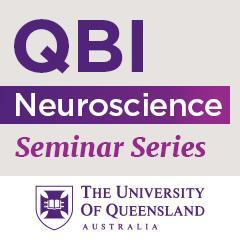International Leaders in Neuroscience Seminar : Professor Florian Engert, Harvard : "Neuronal mechanisms of evidence accumulation and decision making in the larval zebrafish"
Speaker:
Professor Florian Engert
Department of Molecular and Cellular Biology, Harvard University, USA
Title: "Neuronal mechanisms of evidence accumulation and decision making in the larval zebrafish"
Abstract:
Sensory evidence accumulation is a crucial part of any perceptual decision making process. Even though behavioral performance in psychophysical experiments can be well explained by abstract mathematical models of integration and thresholding, it remains elusive how such mechanisms are implemented on the level of neuronal networks. Comprehensive understanding of these underlying processes requires explorations of brain-wide circuit dynamics during individual trials. This is difficult to achieve in mammals where analysis is usually restricted to local circuits, allowing observations of only a very small fraction of the overall networks at any given time. Here we approach this problem by adapting a classical assay based on noisy random dot motion kinematograms, usually used in primate studies, to larval zebrafish. We characterized the delay and accuracy of individual swimming decisions and found that larvae can reliably integrate and remember such motion stimuli over many seconds and that their behavior follows precisely the classical diffusion-to-bound model. We then performed unbiased two-photon functional imaging experiments of the whole brain, identifying key circuit elements involved in the integration process. In particular, we found several neuronal clusters in the anterior hindbrain. One cluster represented the integrated sensory evidence, reminiscent of the diffusive variable in the model, while a second cluster represented sensory uncertainty. We propose that these two units together implement, in a biophysically plausible manner, the thresholding operation such that a third cluster, a motor command unit, is only activated when integrated evidence exceeds uncertainty. Analyzing these structures on the level of individual cells and trials allowed us to build a realistic neural network model, which not only quantitatively reproduced our experimental imaging data, but also the behavior of freely swimming fish.
About Neuroscience Seminars
Neuroscience seminars at the QBI play a major role in the advancement of neuroscience in the Asia-Pacific region. The primary goal of these seminars is to promote excellence in neuroscience through the exchange of ideas, establishing new collaborations and augmenting partnerships already in place.
Seminars in the QBI Auditorium on Level 7 are held on Wednesdays at 12-1pm, which are sometimes simulcast on Zoom (with approval from the speaker). We also occassionally hold seminars from international speakers via Zoom. The days and times of these seminars will vary depending on the time zone of the speaker. Please see each seminar listed below for details.




